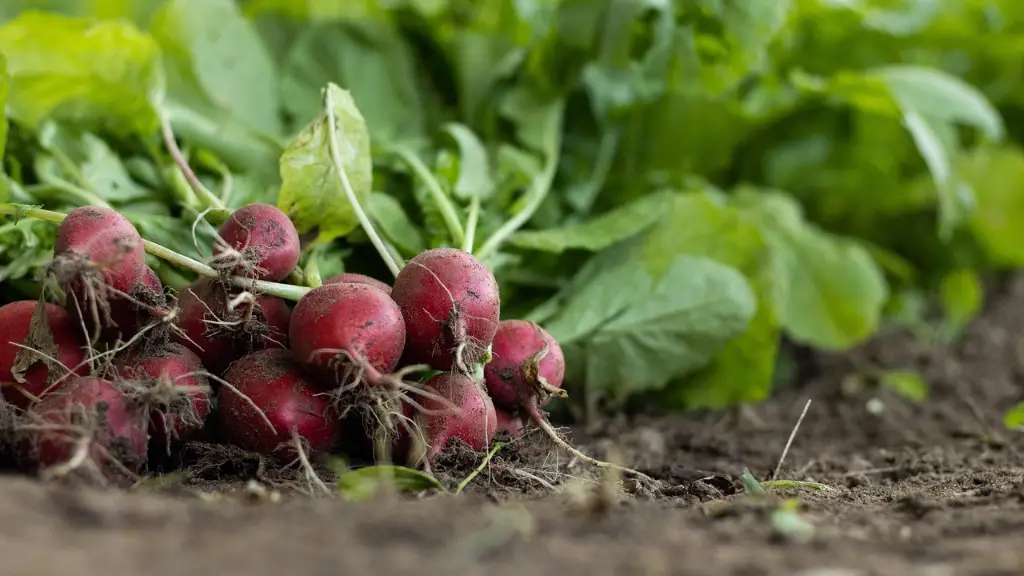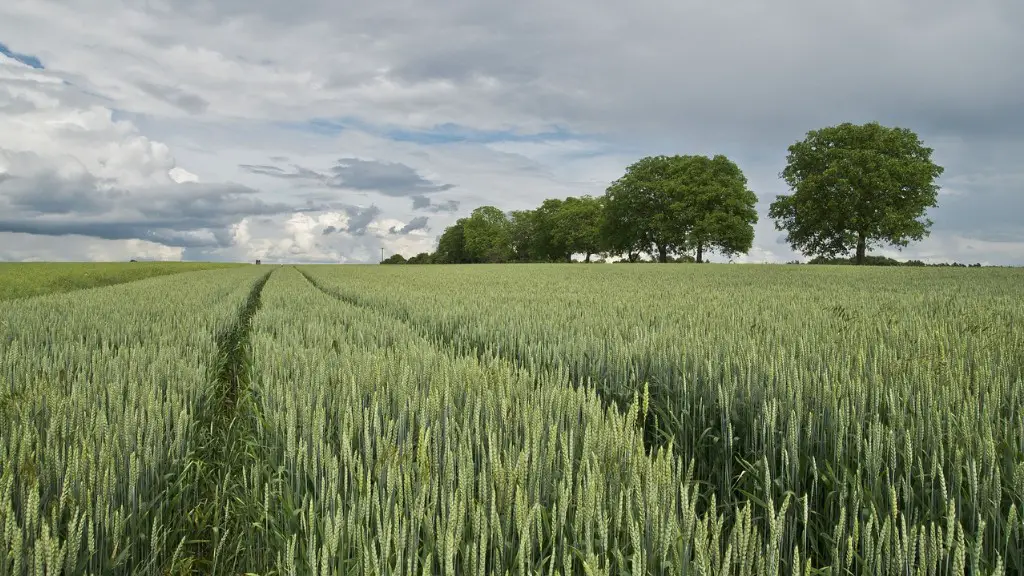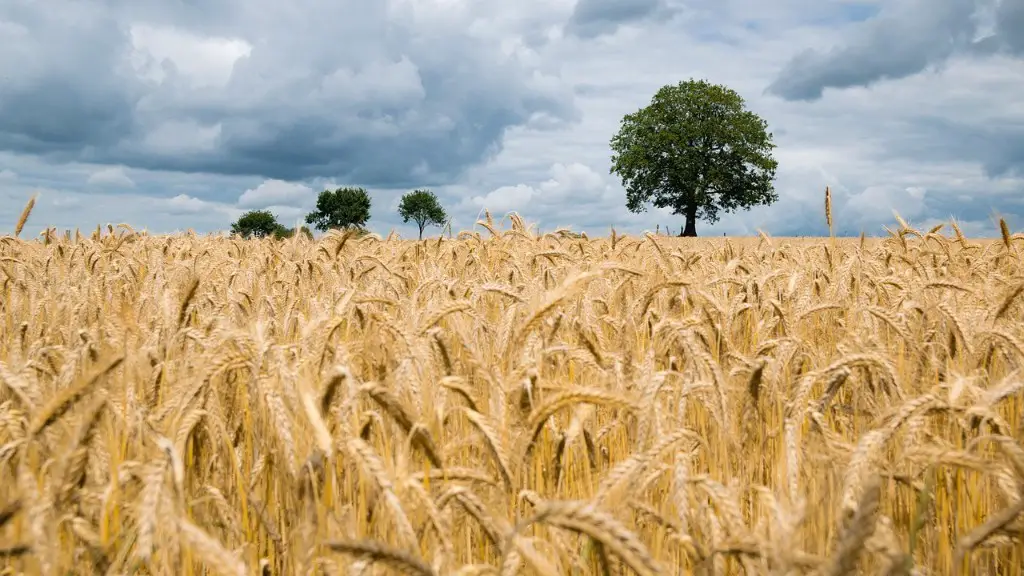Agriculture is an industry that can be divided into several different focus areas, offering both entry-level and highly specialised roles.With a bit of investigation and focus, many people can find a career in the agricultural industry that is both rewarding and satisfying.To give you an idea of the types of career opportunities available in the industry, here is an overview of the nine main focus areas.
Food Production
Food production involves working with crops and animals to produce food products to satisfy global demands. It often involves practices such as crop rotation, harvesting, weeding, and the use of chemicals for pest control. It also involves caring for animals such as cows, pigs, and chickens. People who choose to pursue a career in this field must be able to work with various types of equipment and be able to interpret regulations and guidelines.
Food Processing & Distribution
Food processing and distribution is concerned with the transformation of raw materials into food products. Professionals in this field must possess an understanding of processes such as seed cleaning, sorting, and packing, as well as the ability to handle and store food products. They must also ensure that all food related guidelines, such as health and safety regulations, are adhered to.
Agricultural Technologies
Agricultural technologies involve the use of mechanical and electronic equipment to help manage and improve agricultural processes. Professionals in this field must possess a clear understanding of various systems and techniques. This includes knowledge of GPS satellite systems, soil and water conservation techniques, erosion prevention systems, and information management systems.
Farm Management
Farm management covers a wide range of activities and duties, from financial management to product distribution. Farm managers need to be able to plan and coordinate activities, set budgets, and manage staff. They must also be able to ensure that all safety regulations and laws are adhered to.
Research & Development
Research and development in the agricultural industry focuses on the development of new products, technologies, and systems. To pursue a career in this field, individuals need to possess expertise in areas such as soil sciences, plant sciences, and animal sciences. Additionally, they must also be familiar with research and development techniques, such as genetic engineering. Farming Techniques
Farming Techniques
Farming techniques involve the use of techniques to improve crop yields and quality, as well as animal health and production. Professionals in this field must possess a deep understanding of agricultural techniques and processes and be familiar with the latest technologies and methods for animal and crop care, such as irrigation and plant nutrition.
Marketing & Sales
Professionals in the marketing and sales field are responsible for creating and developing marketing strategies, as well as selling and distributing products. They must be able to develop effective marketing plans, and be familiar with the latest trends in the industry. Additionally, they must also possess an understanding of the international market and be able to develop relationships with customers.
Education & Extension
Education and extension involve providing knowledge, training, and advice to individuals in the agricultural industry. People in this field must possess a clear understanding of the industry and be able to communicate this knowledge in an effective manner. Additionally, they must possess teaching and presentation skills in order to provide the best advice and support to those they interact with.
Sustainable Agriculture
Sustainable agriculture focuses on practices and technologies that allow for the production of healthy food in an environmentally conscious manner. Professionals in this field must possess an understanding of agricultural policies, regulations, and guidelines and be able to identify and develop practices and technologies to meet them. They must also be able to propose sustainable solutions to agricultural problems.
Crop Production
Crop production involves growing and harvesting crops for food, feed, and fiber. Professionals in this field must possess a clear understanding of various agricultural technologies and processes, such as irrigation, tillage, and crop rotation. Additionally, they must be able to identify and address any pest or disease issues that arise.
Animal Science
Animal science involves caring for animals and managing their health and well-being. Professionals in this field must possess a deep understanding of animal nutrition, breeding, and genetics. They must also be able to identify and address any health or welfare concerns that arise. Additionally, they must be familiar with the latest technologies used to improve animal production and management.
Soil and water Management
Soil and water management focuses on maintaining and improving soil fertility, as well as managing water resources. Professionals in this field must have a clear understanding of different types of soil and water technologies, such as rainwater management, watershed management, and soil irrigation systems. Additionally, they must be familiar with policies and regulations regarding water and soil management.
Agricultural Engineering
Agricultural engineering focuses on the development and management of various processes, systems, and technologies related to the production and transportation of food, feed, and fiber. Professionals in this field must possess a clear understanding of a variety of engineering processes, as well as an understanding of the laws and regulations that govern the industry. Additionally, they must be able to identify, develop, and implement new technologies to improve production and efficiency.
Agricultural Law
Agricultural law involves the application of legal principles to the agricultural industry. Professionals in this field must be well-versed in local, state, and federal laws and regulations related to agriculture, as well as the agricultural industry itself. They must also possess the ability to interpret regulations and advise agricultural businesses on issues such as contracts, labor, and taxes.
Environment and Natural Resources Management
Environment and natural resources management focuses on protecting and enhancing natural resources, such as soil, water, and air. Professionals in this field must possess a clear understanding of the laws and guidelines related to natural resource management, as well as an understanding of the technologies used to conserve and protect resources. Additionally, they must be able to research and develop strategies to improve natural resource management and sustainability.



